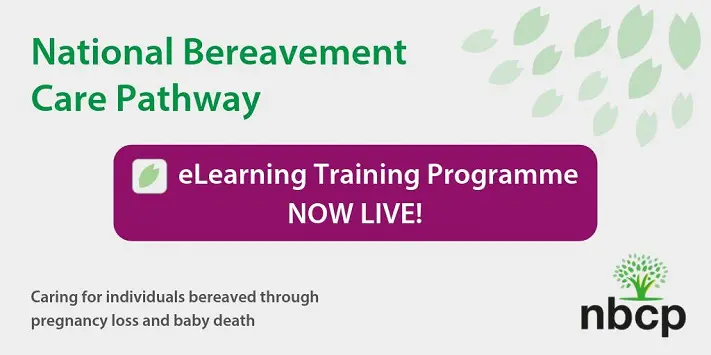Health Education England e-Learning for Healthcare (HEE e-LfH) has been working with the Institute of Health Visiting, the National Workforce Skills Development Unit at The Tavistock and Portman NHS Foundation Trust, maternity and general practice leads and HEE’s Mental Health team to add new content to the Perinatal Mental Health e-learning programme.
The Perinatal Mental Health programme is designed to help educate and develop the workforce’s confidence and competence in caring for people with perinatal mental health problems. The planned updates to the existing e-learning programme are particularly timely, aiming to support key health and care colleagues working with pregnant mothers and new parents, during the additional challenges posed by the COVID-19 pandemic.
Two of the six new e-learning modules were developed by the Institute of Health Visiting, in partnership with HEE, and look at:
- Perinatal Mental Health: Health Visitor Assessment
- Perinatal Mental Health: Health Visitor Interventions
Melita Walker, Mental Health Lead iHV, commented:
“Here at the iHV, we really do believe that there is no health without mental health! And so, we are absolutely delighted to be launching these modules during Mental Health Awareness Week.
“Perinatal Mental Health (PMH) is, to coin a phrase, “ everyone’s business” and perhaps now, more than ever, it is even more vital that all those who work alongside families understand the importance of perinatal mental health: What it is, why it matters and what they can do to support good family mental health and wellbeing.
“It has been a truly collaborative effort, in getting these modules ready to launch during Mental Health Awareness Week and we would like to thank all our partners in making this happen – including Sylvia Woolley, Catherine Lowenhoff, Judy Shakespeare, Toni Turner, colleagues at Health Education England and the National Workforce Skills Development Unit at The Tavistock and Portman NHS Foundation Trust.”
The new content covers six sessions to complement the existing e-learning programme. Each of the six e-learning modules last around 20-30 minutes.
The following sessions are now available:
- Introduction to Perinatal Mental Health 1
- Introduction to Perinatal Mental Health 2
- Perinatal Mental Health in the Antenatal Period
- Perinatal Mental Health in the Postnatal Period
- Perinatal Mental Health: Health Visitor Assessment
- Perinatal Mental Health: Health Visitor Interventions
For more information about the Perinatal Mental Health e-learning programme, including details of how to access, please visit the link below:
The link to this e-learning programme is also on the iHV e-learning resource page:




